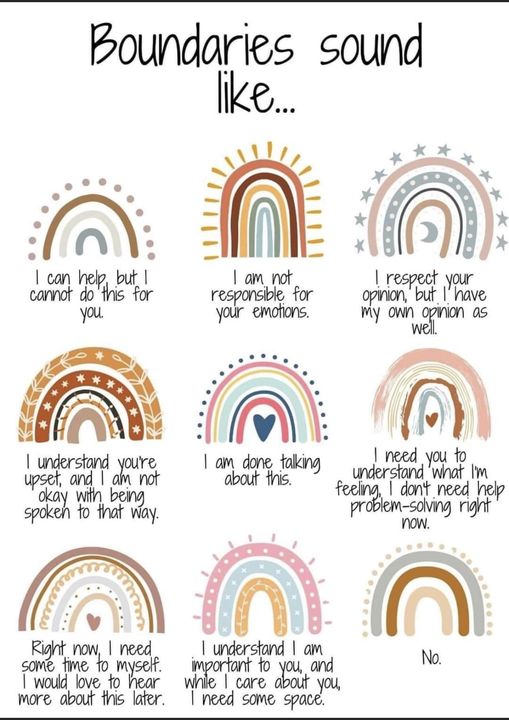Holidays are often triggering, regardless of the type of recovery you are working towards. The pressure to gather with those you may not feel comfortable around can be overwhelming. Even the most well-intentioned family member can do all the “wrong things” for the “right reasons.” When you find the courage to point out your discomfort or the family member’s faux pas, you can be confronted with resistance and even animosity.
How, then, do you establish boundaries that don’t offend or cause a family upheaval? More so, how do you verbalize what you’re feeling in the best possible way? With a few helpful “catchphrases,” you can set boundaries that sound both respectful and firm.
The most obvious boundary setter is a simple “no.” I likely don’t need to tell you how difficult that one word can be. Obviously, you should never feel obligated to provide a reason for your “no.” But if you do feel the desire to fill in details, you can add the following phrases to your repertoire.
Let’s say, for instance, that an overbearing family member is demanding your full attention or help and you’re reaching your wits’ end. When you need to step away, bring the conversation to a close graciously and gracefully with one of these phrases:
- “Right now, I need some time to myself. I would love to hear more about this later.”
- “I understand I am important to you, and while I care about you, I need some space. Let’s continue this conversation later.”
- “I can help but I cannot do this for you. Some of the ideas I’ve shared will get you started.”
In other situations, you may want to prevent or divert a confrontation. Saying the following phrases can quickly establish where you stand and tell the other person where you’re drawing the line:
- “I respect your opinion, but I have my own as well. Let’s agree to disagree on this.”
- “I understand you’re upset, and I am not okay with being spoken to that way. Let’s revisit this another time.”
- “I am not responsible for your emotions. Let’s talk again once we’ve both calmed down.”
Finally, you may want to simply avoid getting advice you’d rather not receive. In such situations, the best approach is to make it clear what you are wanting (or not wanting) from the other person:
- “I need you to understand what I’m feeling, but I don’t need help problem-solving right now.”
- “I am done talking about this for now. Thank you for your ideas.”
Boundary-setting phrases like these may sound foreign, but the more you practice them, the more comfortable you’ll become. Remember this: you have a right to set whatever boundary you want. If the other person refuses to respect that, you needn’t feel guilty. You and your journey to recovery are allowed to come first…during the holidays or any time of the year. So set your boundaries and say them with confidence. Your recovering self will thank you for it.

